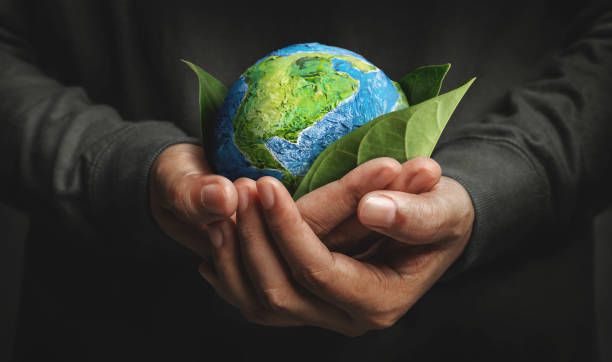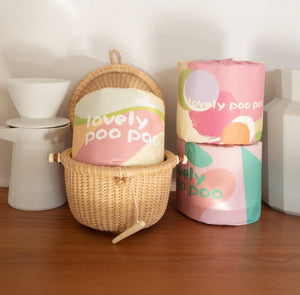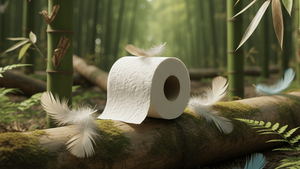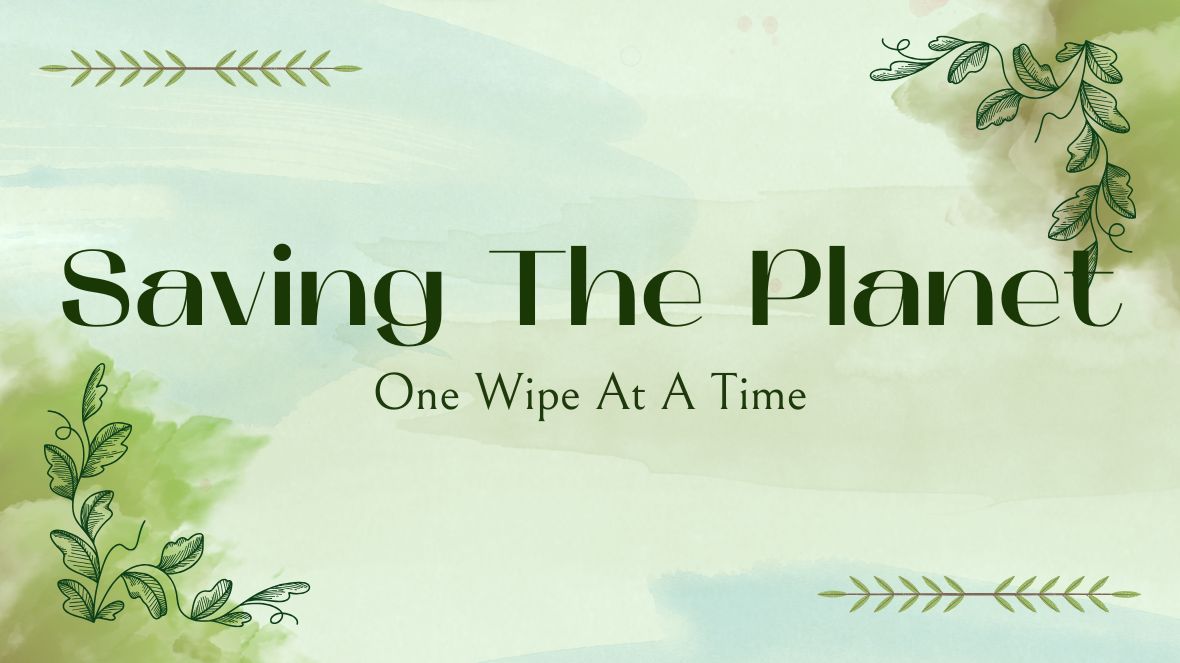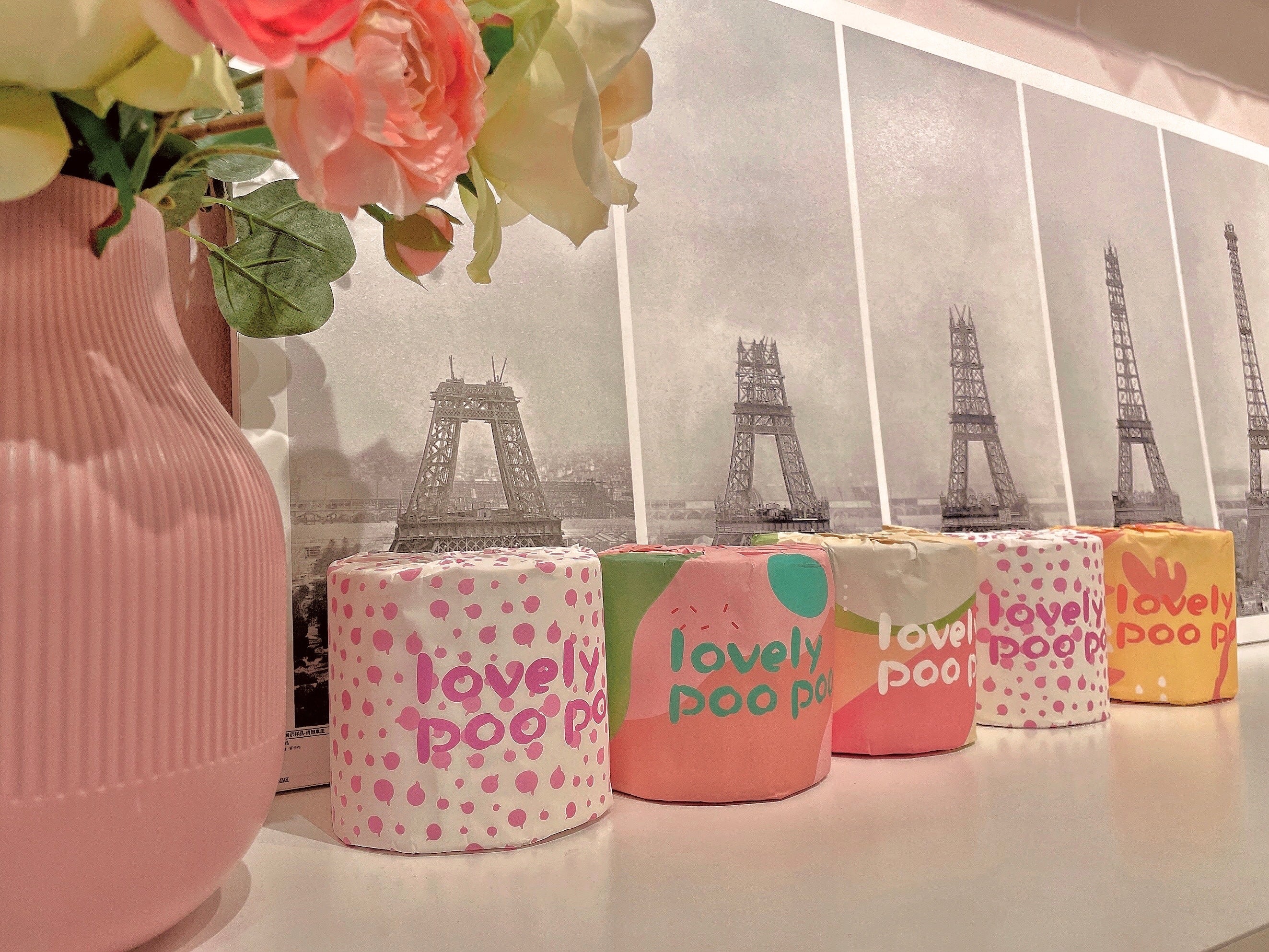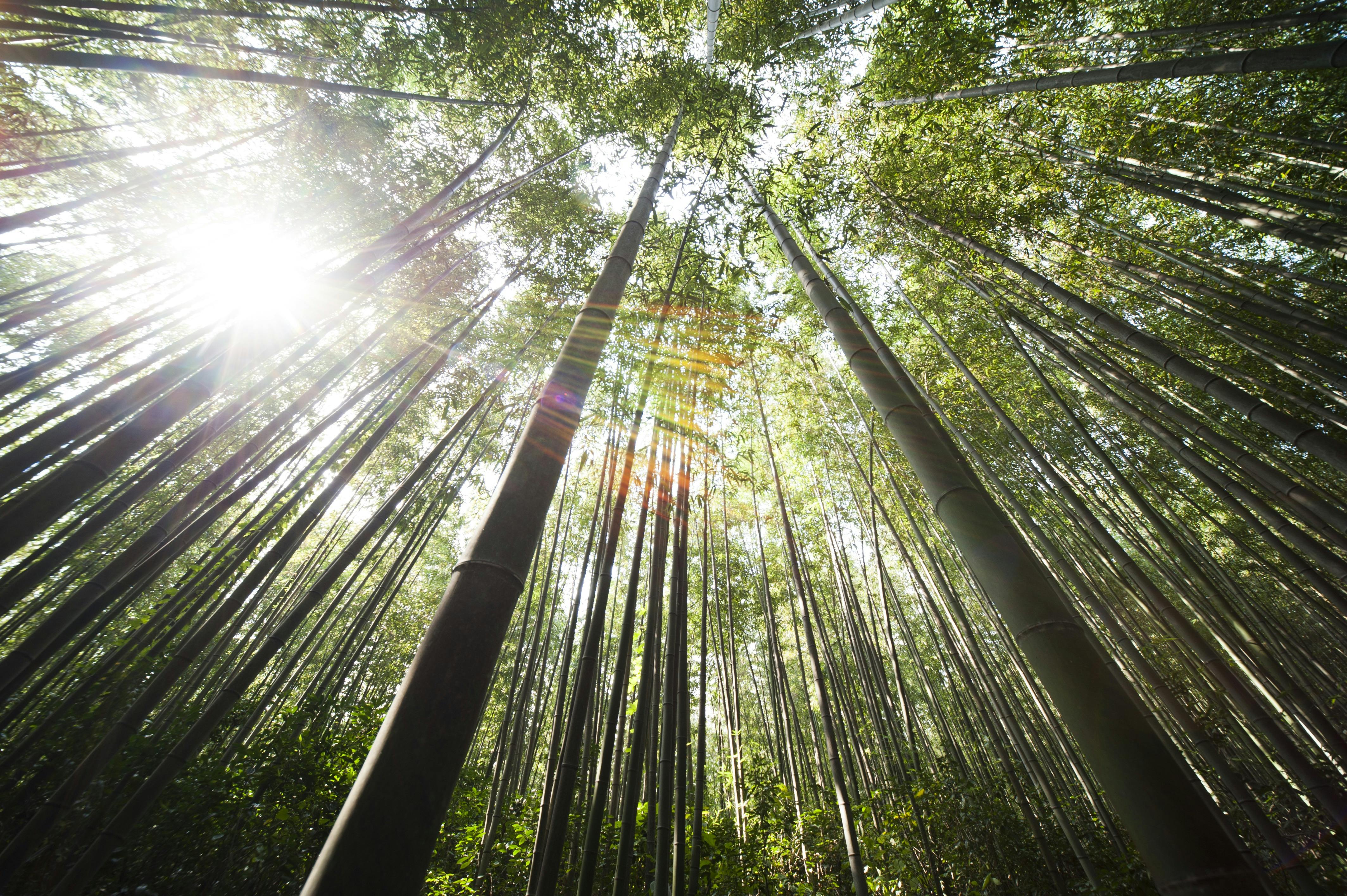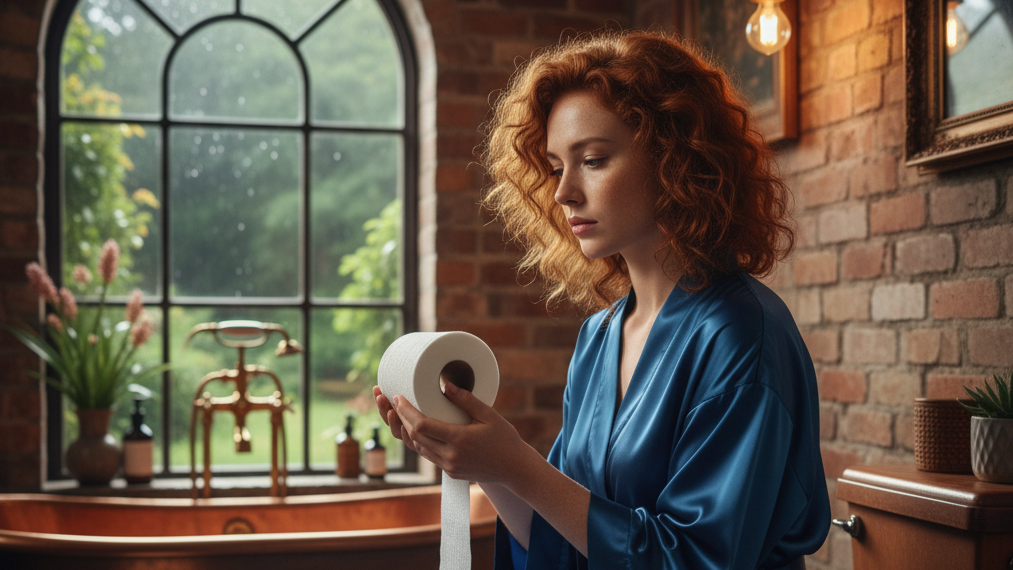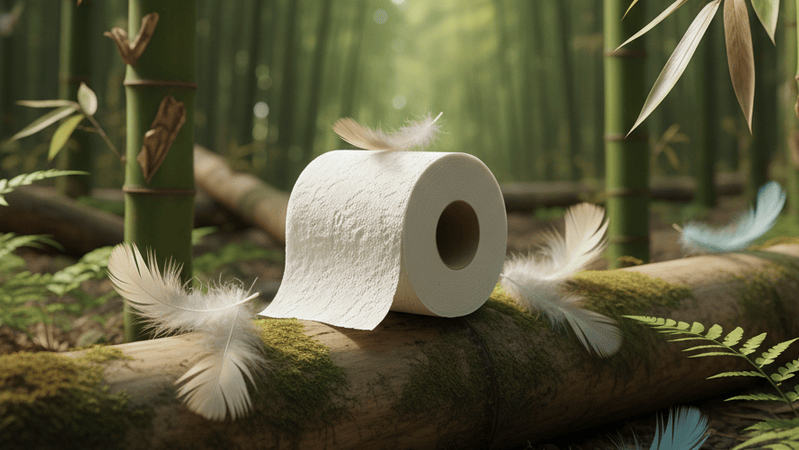It's true that organic bamboo toilet paper can reduce your household's carbon footprint by nearly half, but there's more to it than that. Read on to find out what this means for your bathroom and the planet.
Did you know bamboo can grow more than 1 meter in a single day, making it the fastest‑growing plant on Earth?
Here’s the thing: organic bamboo toilet paper isn’t just a trendy swap. The benefits of this technology include water savings and chemical reductions. And here’s a stat worth pausing on bamboo TP production, which uses around 60% less water and emits 30% fewer greenhouse gases than conventional toilet paper.
How Bamboo Helps Save Forests
When we use bamboo instead of cutting trees, we ease pressure on forests. Bamboo doesn’t need replanting. You cut the stalks, and the plant keeps growing. What this really means is less habitat loss and healthier ecosystems.
Reduced Tree Harvesting
-
Less deforestation: Conventional toilet paper relies on virgin wood, often from old‑growth forests. Bamboo swaps that out.
-
Fast regrowth: Bamboo matures in 3–5 years, compared to decades for trees.
Biodiversity Per Cup of Pulp
Studies show bamboo farming can support soil health and biodiversity if done right. Still, monoculture plantations can harm local ecosystems. What’s key is choosing brands that manage bamboo sustainably.
Water Use and Carbon Emissions
Let’s break it down with a comparison, no tables here, just clear points:
-
Water use: Bamboo TP requires around 60% less water than tree‑based paper and 30% less than recycled.
-
Carbon footprint: Life‑cycle studies show bamboo paper emits about 30% fewer greenhouse gases than virgin fiber, and about 45% less than average recycled rolls.
-
Carbon capture: Bamboo sequesters roughly 2 metric tons of CO₂ per hectare per year.
Chemical-Free Processing
Here’s what’s good to know: Bamboo’s natural antibacterial properties mean less chemical treatment is needed. Many bamboo toilet papers use chlorine-free bleaching, avoiding toxins used in conventional paper.
Avoiding Toxins
-
No BPA or PFAS: Recycled toilet paper can contain BPA from thermal paper; bamboo typically avoids that.
-
Bleaching without chlorine: Look for TCF (Totally Chlorine Free) or PCF labels, not ECF (Elemental Chlorine Free).
Benefits for You: Soft, Hypoallergenic Natural Toilet Paper
Switching made a real difference for my family. In my daughter's case, regular toilet paper caused irritation to her sensitive skin. We switched to bamboo, and suddenly things felt gentler. It’s soft, strong, and a relief after harsh brands.
Sensitive Skin Wins
-
Gentle texture: Bamboo fibers are naturally soft yet strong, super gentle on sensitive areas.
-
No added scents or dyes: Pure bamboo rolls avoid added irritants common in other papers.
Plastic Free Toilet Paper in the Bathroom
Let’s talk about packaging. Many bamboos TP brands ship best chemical free toilet paper, using recyclable or compostable wraps. You get a cleaner bathroom and less waste at the curb. For example, a brand we tried used paper wrap and a fully recyclable box. It just felt good.
Does It Cost More?
Sure, bamboo TP might cost a bit more up front, expect $0.50 to $0.75 per roll vs $0.30 for basic tree‑based brands. But the value? You’re paying for environmental savings and quality. Compared over a year, it can cost less than the unseen ecological impact of cheap rolls.
Hidden Costs of Cheap Rolls
Cheap conventional TP often comes with surprising costs:
-
More bleaching, more chemicals
-
Larger carbon footprint from forestry and production
-
Potential BPA exposure from recycled fiber
Choosing Truly Eco-Friendly Tissue
So, how do you pick the real deal?
-
Look for FSC certification- it ensures responsible sourcing.
-
Check for TFC or PCF labels- these mean chlorine‑free bleaching.
-
Check packaging, go for products that skip plastic packaging.
-
Watch out for greenwashing- a recent UK study found 3 of 5 bamboo brands had misleading fiber claims.
Voices from Experts and Everyday Folks
“Bamboo tissue products produce 30% fewer greenhouse gas emissions than those made from virgin forest fiber,” says Shelley Vinyard.
“Some bamboo rolls only had 2.7 % bamboo fiber,” warns Which? Watchdog.
One family I know swapped to bamboo and found they used 20% less paper, it was stronger and lasted longer.
Practical Tips for Your Switch
Here’s some advice that helped us:
-
Store rolls in a dry spot- bamboo can weaken if damp.
-
Try bamboo TP on your septic system; most brands are safe and dissolve fast.
-
Pair it with compostable wipes or a bidet for a cleaner, greener bathroom setup.
Debunking Misconceptions
Bamboo TP isn’t always pure bamboo
Yes, sometimes it’s mixed with other fibers. That UK study showed 3 of 5 bamboo brands weren’t genuine. Always check labeling and certification.
Recycled vs bamboo?
Recycled toilet paper avoids cutting new materials, but the de‑inking and bleaching processes can use more energy and involve chemicals like BPA.
Septic systems- yes, it works
Almost all bamboo toilet paper dissolves quickly enough to be safe for septic tanks.
Ready to Clean Up Your Routine?
Switching to bamboo is a simple step toward a healthier planet. You get soft, reliable toilet paper shipped in plastic‑free wrapping- plus the good feeling that you’re helping reduce deforestation and emissions.
Here’s what you can do next:
-
Start with one pack and see how it fits your family’s needs.
-
Look for FSC, TCF/PCF labels, and plastic‑free packaging.
-
Share your experience online; your story could help others make the switch.
FAQs
Q: What makes bamboo toilet paper more sustainable than recycled?
Bamboo grows fast, uses less water and energy, and needs fewer chemicals, though certified recycled TP can still be eco-friendly, it comes with its own trade‑offs.
Q: Can bamboo tissue clog septic systems?
Not usually. Bamboo TP dissolves quickly and is safe for most septic systems.
Q: Is organic bamboo toilet paper hypoallergenic?
Yes. Bamboo fibers and lack of additives make it a solid pick for sensitive skin.
Q: How’s bamboo TP compared to conventional in strength?
It’s often stronger and lasts longer per roll, thanks to robust natural fibers and fewer weak spots.
Q: Are there any downsides to bamboo rolls?
They may cost more, and small firms sometimes mislabel fibers. Do your homework before buying.
